
Take Action Today!
Tell your governor legalization without justice is HALF BAKED.
Ben & Jerry’s is back with another season of Into the Mix, a podcast about joy and justice. Hosted by Ashley C. Ford and produced with Vox Creative, this season will bring you stories of struggle and success from the everyday people at the heart of our greatest fights — from voting rights, to cannabis justice, to dignity for migrant workers — today.
.png)
Subscribe now, and don’t miss a moment of Into the Mix.
Johnny Perez worked hard throughout his 13 year prison sentence. He sewed sheets and facilitated classes, met demanding quotas and helped other men prepare for life on the outside. The highest wage he was ever paid was 34 cents an hour. Meanwhile, prison labor generated $14 billion last year.
So why do so many people like Johnny leave prison empty handed?
In this Season Two finale, we’re going back to 1865, to understand how a key exception written into the 13th Amendment paved the way for the modern prison industry. From convict leasing to prison plantations, exploited labor is part of the DNA of this country, and more than two-thirds of people behind bars in America labor throughout their incarceration. Their average day wage? Just 86 cents.
But: there’s a growing movement to end the exception, and end slavery once and for all in this country.
Learn more about the movement to End the Exception here, and be sure to check out Worth Rises’ incredible study on prison labor, and UNICOR’s phone bank video. You can also learn more about Johnny’s work for NRCAT here.
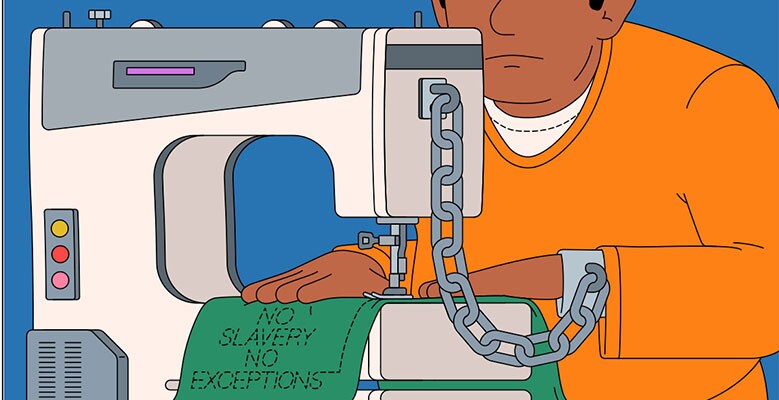
When Flo was arrested in 2016, he did not expect to be wrapped into the predatory commercial bail industry. $7,500: that was the amount the judge set for his pretrial release. “$7,500 might as well have been a million dollars to me.” As a result, Flo spent two months in jail even though he was legally innocent.
Half a million Americans are in pretrial detention at any given moment, and more than 60% of them are there because they can’t afford bail. In theory, bail is supposed to be one way out of jail. So how did it become a way to trap so many people in, even when they're still legally presumed innocent?
Learn more about the Pretrial Fairness Act, and support the Coalition to End Money Bond.
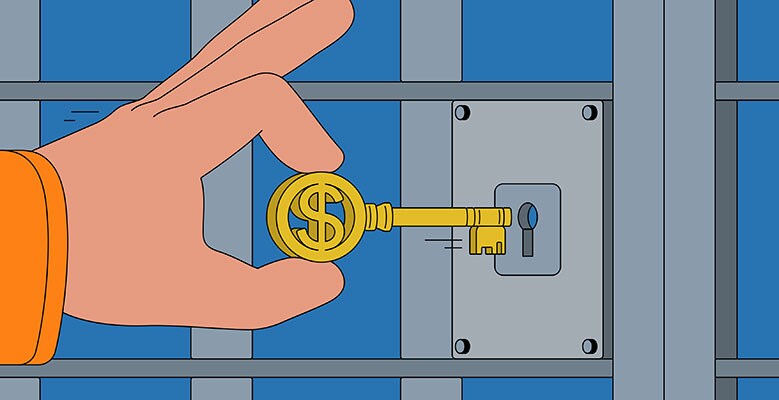
Priscilla Robinson says the Southside neighborhood of Asheville, North Carolina was once a thriving, tight-knit community. She describes fruit trees and multigenerational homeowners, booming small businesses and neighbors who looked out for one another. But that all changed in 1968, when the city approved plans for “urban renewal” and displaced more than fifty percent of Asheville’s Black residents, including Priscilla and her family.
Decades later, in 2020, Asheville became just the second city in the US and the first in the south to approve reparations for its Black population, and Priscilla is making sure that the harms of urban renewal aren’t forgotten as a community Reparations Commission shapes its plan.
To see photos of the Southside prior to Urban Renewal, and to explore Priscilla’s research, click here. You can also learn more about the Racial Justice Coalition of Asheville here, and join us in calling for President Biden to establish a federal Reparations Commission here.
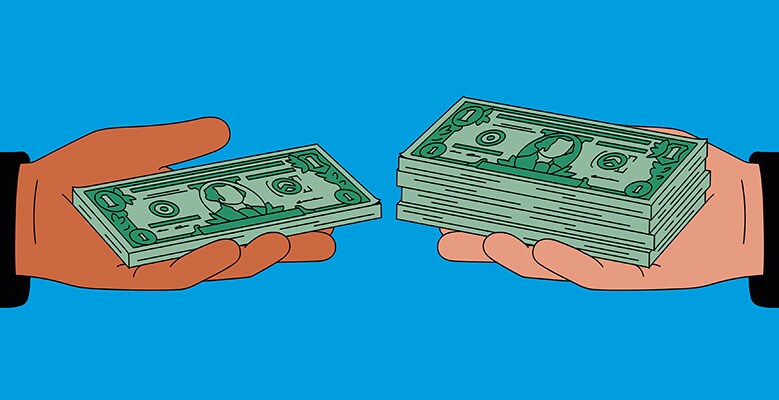
When 3rd year med student Megh Kumar told a mentor she’d decided to go into OB GYN, she got an unexpected piece of advice: don’t.
It’s been more than a year since the Supreme Court revoked constitutional protections for abortion rights with their Dobbs decision. Since then 13 states – including Megh’s home state of Kentucky – have banned nearly all abortions. Some states have criminalized performing or abetting abortion. The effect has been chilling not only for patients who need them, but for doctors who feel it’s their medical duty to provide them.
As the next generation of doctors like Megh enter this field of medicine, many are asking themselves if it’s worth it. Abortion providers are often targets for harassment and violence, and studying in a restrictive state might limit training opportunities. Data show a more than 10% decrease in residency applications to OB GYN programs in restrictive states. If fewer doctors are training to be OB GYNs, what does that mean for the rest of us?
Learn more about how to advocate for abortion rights at WeTestify, and visit SisterSong.net for more information about reproductive justice.
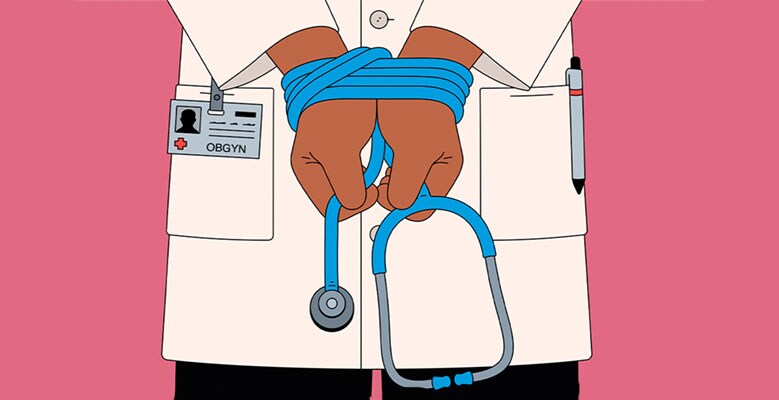
On a cold night in 2002, Chrissy Isaacs watched yet another logging truck loaded with old growth trees hurtle past her home in the Grassy Narrows First Nation, down the only road into the reserve: built by and for the logging industry.
Enough was enough. That night, she dropped a tree in the road to block the loggers, and changed her community forever.
This is the story of land back, and the fight to correct the long, long history of colonizers claiming indigenous territories as their own for economic benefit. But for millions of Indigenous people around the world, land back is about a lot more than ownership. It’s about relating to the land as more than just a resource, a commodity extracted, traded, owned, and controlled. Land back is about relationships, and what happens when we reconnect to the lands and waters that shape us.
Please take care when listening: this episode discusses suicide and self harm.
Learn more about how mercury poisoning has affected Grassy Narrows, support the community as they fight logging and mining claims in their traditional territories, and get to know Indigenous Climate Action here.
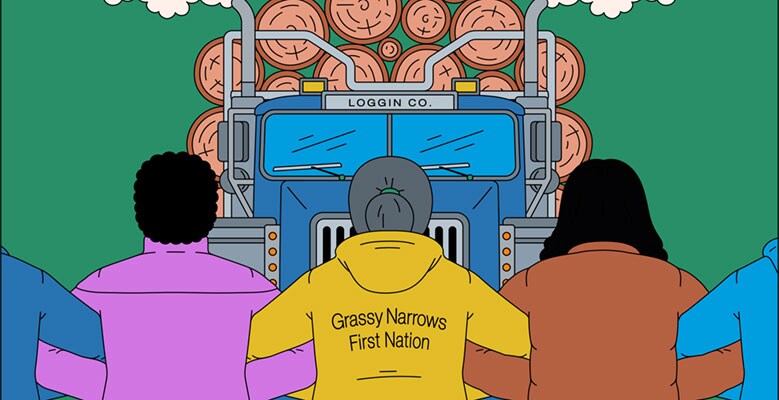
Andrea Phillips loves her job. She works at an elementary school as a reading interventionist, teaching struggling readers to love books. When she was told by her district to pack up her classroom library earlier this year, she was devastated.
In 2022, Florida lawmakers passed HB 1467. This new law mandated that every book in Florida public schools be cataloged and reviewed for “harmful content”, and that schools create a system for parents to petition the removal of books they found inappropriate. Out of an abundance of caution, two county school districts – including Andrea’s – decided to block or remove all unreviewed books from schools while they adopted this new system. Otherwise, administrators worried they could be liable for violating another Florida law. In effect, more than 175,000 Florida students went to schools where library books were off-limits for part of the school year. Across the state hundreds of books containing themes of race, sexuality, and LGBTQ identities have been pulled from school libaries, even classics that are required reading in other states. Critics say this is just another example of Governor Ron DeSantis attempts to silence marginalized voices in Florida classrooms.
Book bans have happened throughout our country’s history, usually in response to changing social norms. But when public education is unequal and struggling schools can’t afford to lose any resources, what do laws like this do to our most vulnerable students? Host Ashley C. Ford explores Florida’s book bans, their effects on students and educators, and the evolving history of American public education.
For more information on how to support teachers and get banned books to kids, visit ALA’s Unite Against Book Bans campaign, and support Foundation 451.
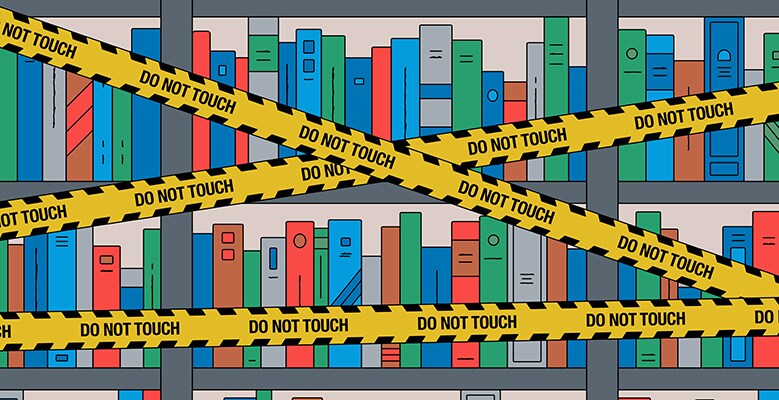
Most kids in the U.S. go to a school that’s patrolled by police officers. They’re supposed to keep students safe, but after decades of increased surveillance, in-school arrests have skyrocketed for kids of all ages. And most of the kids arrested at school are students of color.
A group of students in Des Moines, Iowa didn’t need data to know that police in their school district were harmful, so they set out to do something about it. Here’s how they worked with their community to build a greater movement to protect students, and especially students of color.
Learn more about the Advancement Project’s Opportunity to Learn campaign here.
Learn more about the effectiveness of restorative justice in schools (13:45), How Des Moines Public Schools have updated their policies (25:50), and how Endi, Lyric and Kai made change in Des Moines (10:00).
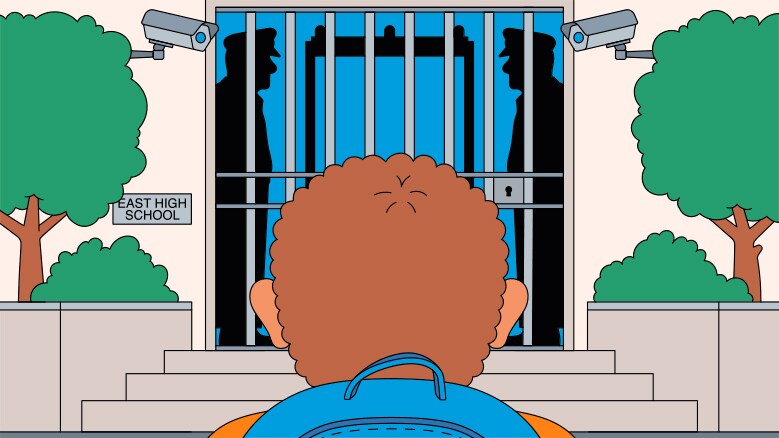
One Woman’s Unlikely Journey from Afghanistan to the UK
In January 2021, Zahra Shaheer had to get out of Afghanistan… fast. So when she had the rare opportunity to secure safe passage for herself and her two children, she made the heartbreaking decision to flee, even though it meant leaving her mother behind. Now, Zahra and her mother remain separated by thousands of miles, and insurmountable policies that are designed to prevent her mother from reuniting with her family in the new home in the UK.
David Miliband from the International Rescue Committee joins us to look at the history of global refugee policy, and the importance of safe routes as more displaced people seek safety around the globe than ever before.
To learn more and take action, visit https://www.rescue.org/worldrefugeeday, and to call for safe routes, take action here.
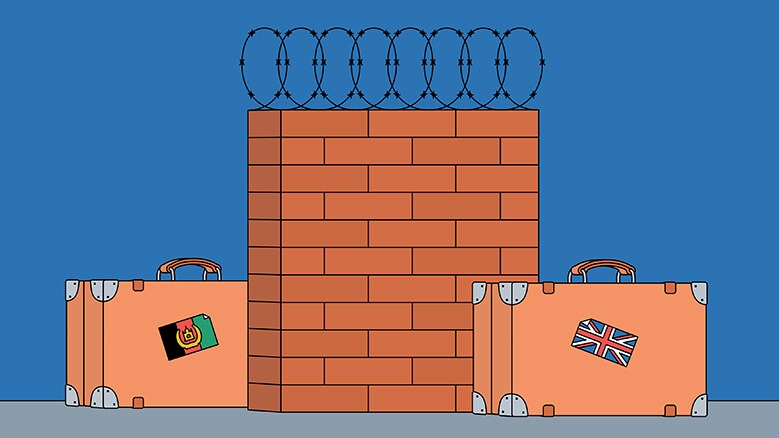
As lawmakers consider more than 500 anti-trans bills nationwide, experts warn that these efforts will increase already-high rates of depression and suicidality for trans kids. But what happens when these kids are affirmed and supported in their transition? When their communities welcome them with open arms?
Hear the story of Oli Oski, who, when he was just seven years old, helped convince an LGBTQ resource center to start offering play groups for trans and queer kids under 13. Oli is 19 now, and already he’s left a legacy for the next generation of LGBTQ kids who face acute social and political persecution. Host Ashley C. Ford helps tell this story of self determination, legacy, and sanctuary.
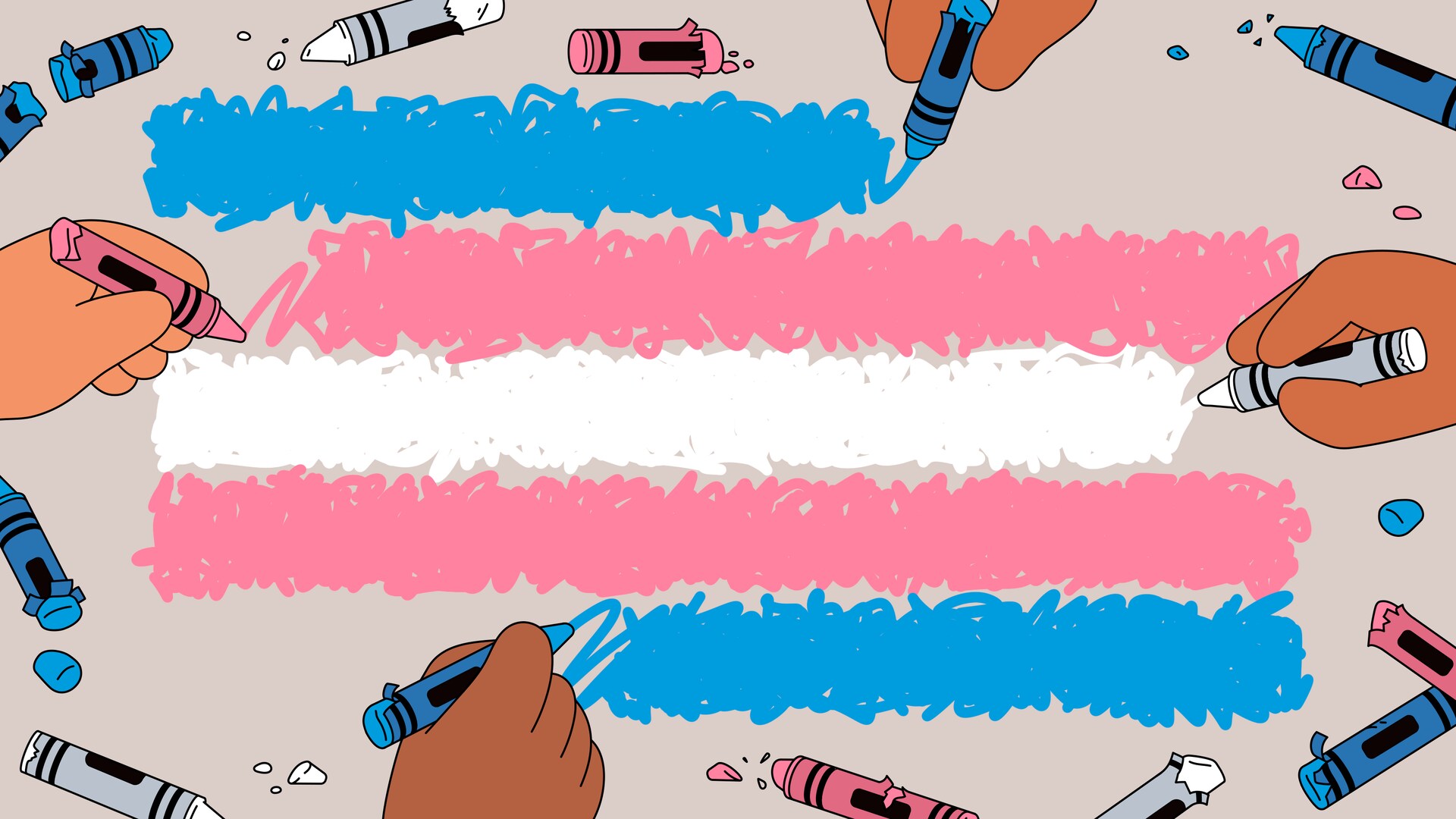
Did you know that without migrant farm workers, the price of dairy would be twice as expensive? Dairy farming is one of the most challenging jobs in agriculture, and like a lot of farmwork has notoriously weak legal protections for workers, leading to long hours, poor pay, and unsafe conditions. Host Ashely C. Ford tells the story of how a group of farmworkers came together after a senseless tragedy to demand change – and together built a safety net to protect their most vulnerable workers.
Learn more about Migrant Justice and their Milk with Dignity program.
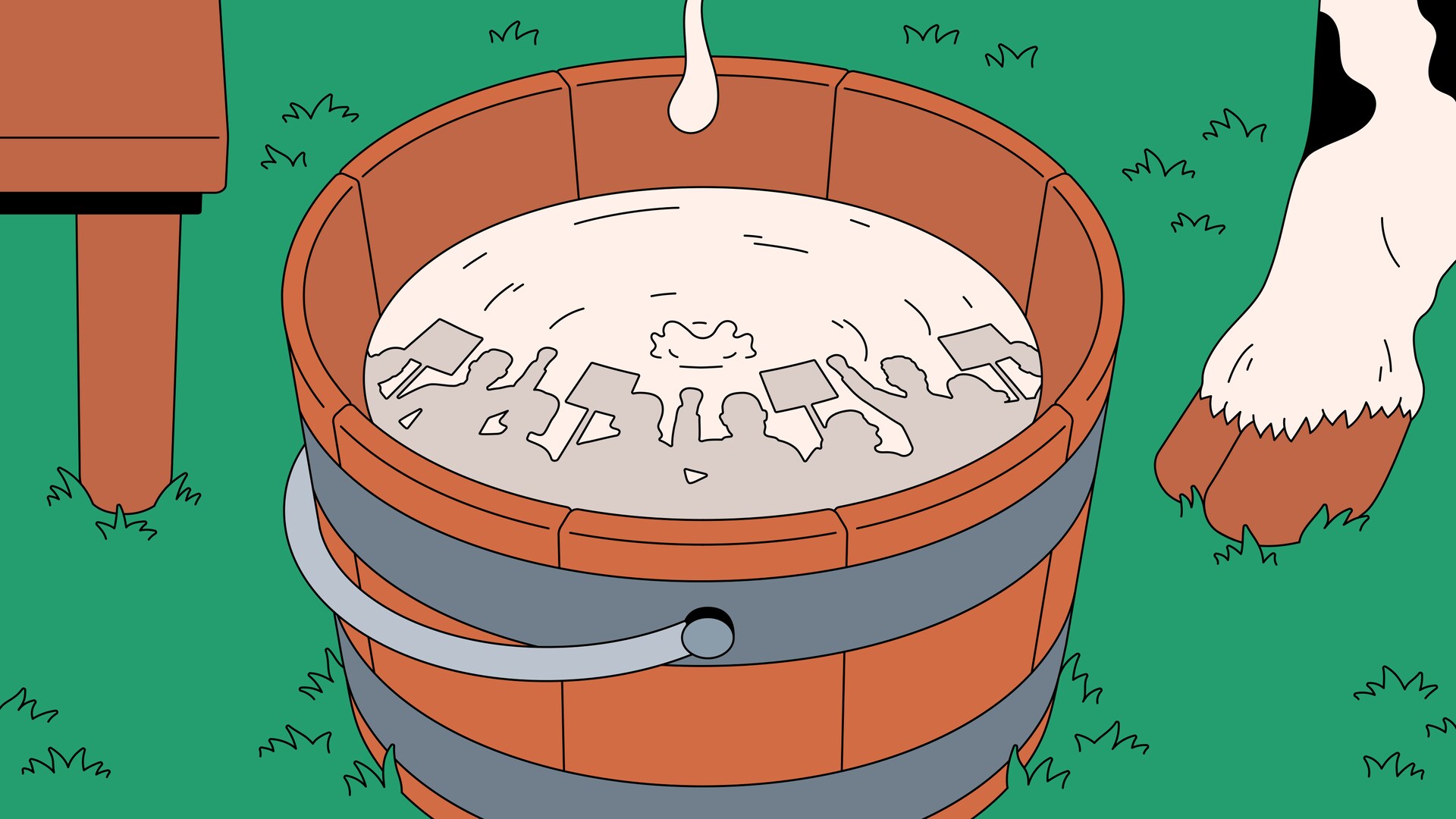
Back in the day, Michael Thompson was a local legend in Flint, Michigan. He brought acts like Aretha Franklin to town, and did incredible work to ease vicious gang violence in his community. So when he was sentenced to 42 to 60 years in prison, Flint was shocked, and devastated. His crime? Selling marijuana to a police informant.
Michael was still serving time while recreational dispensaries began popping up all over his hometown, and he ended up serving the longest sentence for a nonviolent drug charge in the history of Michigan. As he navigates life post-release, he’s calling for others left behind in prison to get the same opportunity to walk free through clemency.
You can learn more about his mission at MTclemency.com.
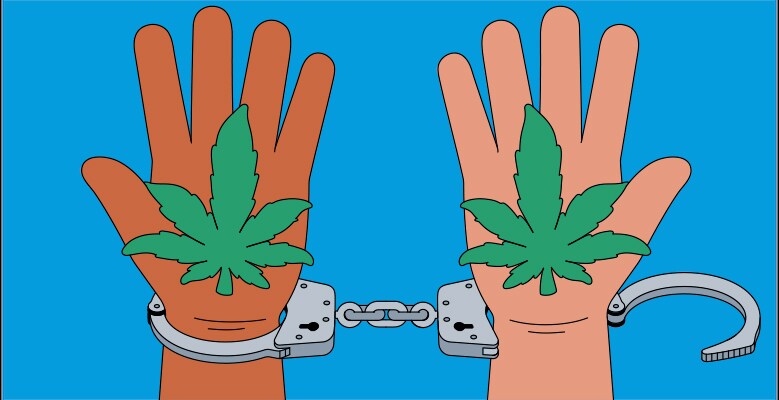

Tell your governor legalization without justice is HALF BAKED.
Today, over 4.5 million people can't vote in the United States because of a mistake they made in the past.
Desmond Meade is one of them. He's a "returning citizen" who understands the devastating impacts of having your civil rights stripped away, and the redemptive power of second chances. So, he set out to do something about it, and brought about the greatest expansion of voting rights in America in half a century. It’s that work that just earned his organization a Nobel Peace Prize nomination.
You can learn more about Desmond’s work at the Florida Rights Restoration Coalition here.
.jpg)